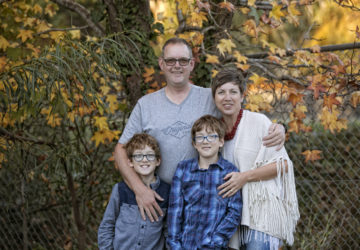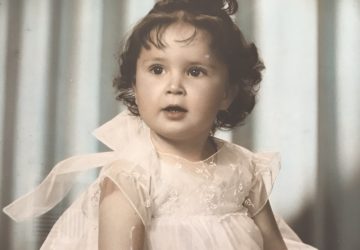And the Table Will be Wide
The sun streamed through the chapel windows. It was 9am on an ordinary Tuesday and I was about to participate in a Catholic Mass for the first time in my life. With the exception of a very, brief stint at a Catholic school more than 40 years ago, this was my first real experience of Catholic community and liturgy.
When I arrived at The Abbey the night before, the gracious sister who welcomed me had explained the basic protocol around the five prayer services that were held each day. ‘You are free to participate as much as you wish’ she said. ‘We like to let you know what to expect so that you don’t feel uncomfortable or embarrassed.’ At no point did she ask me if I was Catholic, whether I had been baptised or even had any experience with the Catholic faith.
She took me as she found me and welcomed me in to their community.
There were about a dozen others like me, men and women, mostly older, who were participating in a time of retreat at the nearby cottages. After all the sisters had entered the chapel we began by singing a few verses of scripture from the old and new testament. I struggled to follow along with the ancient melody, so I gladly closed my eyes and listened instead. The words seemed to float around and over me, light and gentle yet rich with truth.
When it came time to share in the Eucharist we all formed a half circle around the cross at the front of the church. The priest stepped towards me and placed a piece of bread in my hand. I held it there. I was the first to receive and the instructions the night before had been clear, ‘wait till all have received and then we will eat the bread together.’ The wafer was so thin that it was almost translucent yet as I waited it became heavier and heavier. The significance of what I was figuratively, holding unsettled me.
This is my body, which is given for you. Do this in remembrance of me
(Luke 22:19).
Silent tears slid down my face. Surrounded by strangers I stood and wept. Not sobs thank goodness, but quiet, almost invisible tears of pain and sadness that could be contained no longer. As I held the broken bread of suffering, I felt the arms of God holding me. As I was compelled to wait in that place of uncertainty and unknowing I began to relax and exhale. I was learning the power of lingering in the space that suffering creates. Feelings of hopelessness, despair, abandonment and confusion that I had been vigorously denying and avoiding were seeping out through my tears. I sensed the Holy Spirit whisper to me, ‘You don’t need to rush through your pain, I’ll stay here with you as long as it takes.’
God in my pain? How is that possible? Isn’t God waiting on the other side of my pain? Isn’t His glory revealed in the reality of the promised breakthrough, His presence my reward for persevering and pushing past the pain? Not to mention the fact that pain, by definition, hurts!
Who wants to linger in a place like that?
I realised then that I although may not want to, I needed to. By avoiding pain, despising my own weakness, denying my very real suffering, I was in equal measure also rejecting the remedy. How could I fully experience Christ the wounded healer and suffering saviour if I continued to pretend that I was neither wounded or suffering? How could I embrace the infinite mystery of grace if I presumed that I no longer needed or deserved it? The wholeness that Christ was offering me was only available through the brokenness he suffered for me. He was not indifferent or detached from my pain. He embraced it, as he embraced me!
We ate the bread together and then the cup was passed to each of us, in turn. The wine was bitter at first, then sweet and soft with a lingering warmth that reassured me. I savoured every moment that the wine connected with my palate. The broken bread had taken me deep into my pain and now the crushed grapes brought me home again. I was reminded afresh that the brokenness of death always precedes the new wine of life.
It was not lost on me that only a few years earlier I would have probably not even entered a Catholic Church or been willing to participate in a Catholic service – we were not the same tribe. Yet here I was, accepted without question and included without hesitation. If that’s not the Jesus way, then I don’t know what is.
The very first celebration of the Eucharist, also known as The Last Supper, is a powerful statement about many things not least of which is grace and inclusion. If Jesus willingly sat at a table with Judas who would betray him and Peter who would deny him then who am I to question who else Jesus invites to dinner?
At the Lord’s Table everyone is welcome. Those we don’t understand, those we disagree with and even those who may betray, disappoint and reject us.
I walked back to my cottage; back into the blissful, awkward, healing solitude of prayer, Bible reading and reflection. I still had questions and fears, doubts and insecurities but more than that I had peace that wherever God is, there is space and healing, for all of us.
And the Table Will Be Wide:
And the table will be wide.
And the welcome will be wide.
And the arms will open wide to gather us in.
And our hearts will open wide to receive.
And we will come as children who trust there is enough.
And we will come unhindered and free.
And our aching will be met with bread.
And our sorrow will be met with wine.
And we will open our hands to the feast without shame.
And we will turn toward each other without fear.
And we will give up our appetite for despair.
And we will taste and know of delight.
And we will become bread for a hungering world.
And we will become drink for those who thirst.
And the blessed will become the blessing.
And everywhere will be the feast.
– © Jan Richardson




